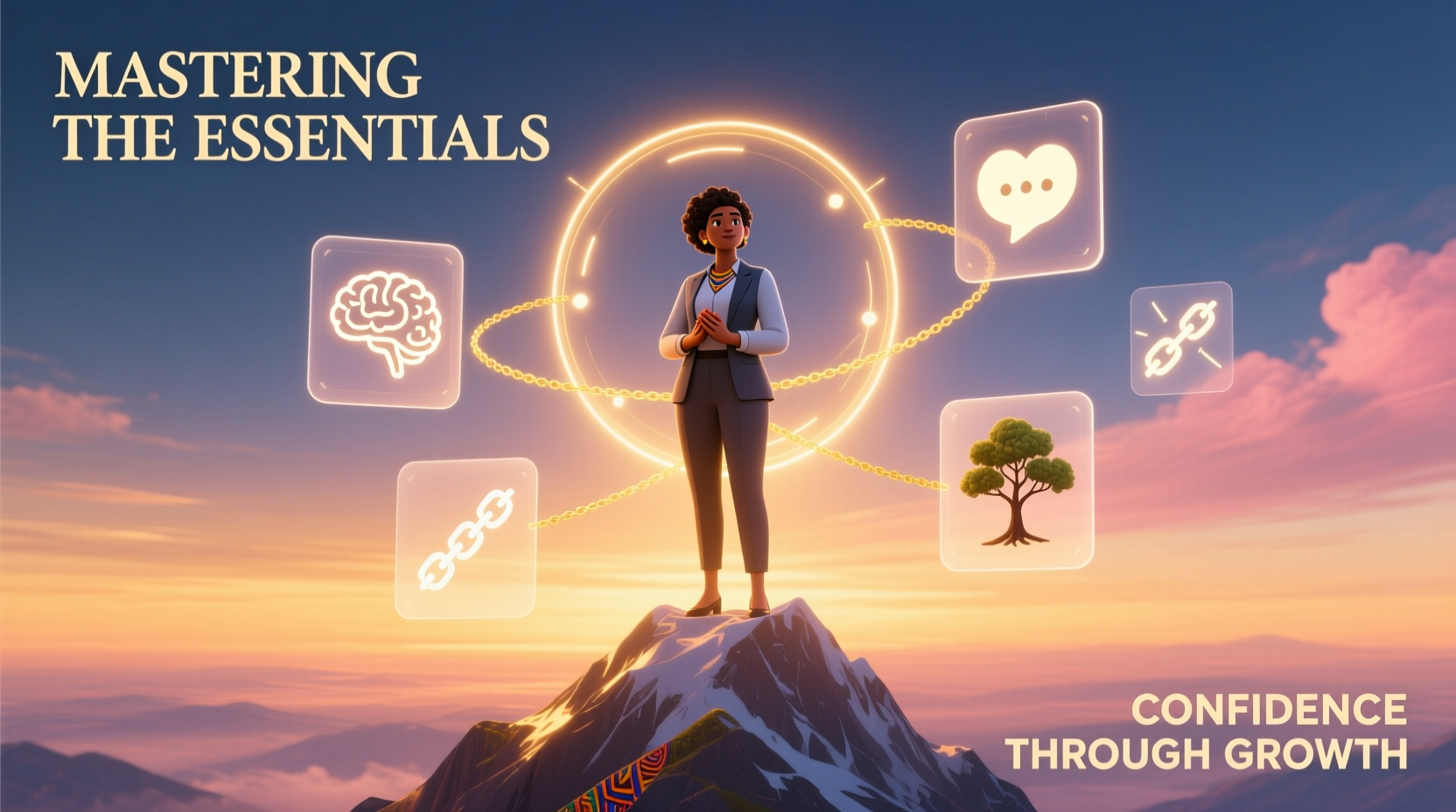In today’s fast-evolving world, being \"top\" isn’t just about titles or accolades—it’s about mastering the core abilities that enable consistent performance, resilience, and influence. Whether in your career, relationships, or personal development, the most successful individuals share a common foundation: essential skills sharpened over time and confidence built through deliberate action. This guide breaks down what it takes to cultivate both, offering actionable insights to help you rise above the noise and operate at your peak.
1. The Core Essential Skills That Define Top Performers

While expertise varies by field, certain skills consistently separate high achievers from the rest. These are not innate talents but learned competencies that compound over time.
- Critical Thinking: The ability to assess situations objectively, identify biases, and make sound decisions under pressure.
- Emotional Intelligence (EQ): Understanding your emotions and those of others enables better communication, conflict resolution, and leadership.
- Adaptability: In a world of constant change, those who pivot quickly and maintain composure outlast rigid thinkers.
- Effective Communication: Clarity, active listening, and tailored messaging ensure your ideas are heard and understood.
- Time Mastery: It's not about doing more—it's about prioritizing what matters and eliminating distractions.
2. Building Unshakable Confidence: Beyond Positive Thinking
Confidence is often mistaken as a personality trait—you either have it or you don’t. But in reality, it’s a skill developed through repeated success, preparation, and self-awareness.
True confidence isn't arrogance; it's the quiet assurance that comes from knowing you can handle challenges. It grows when you step slightly outside your comfort zone and return with evidence of capability.
“Confidence is earned in the moments you show up despite fear.” — Dr. Angela Lee, Organizational Psychologist
Start small: deliver a short presentation to a trusted colleague, initiate a difficult conversation, or volunteer for a task just beyond your current skill level. Each micro-win reinforces your belief in your abilities.
Step-by-Step Guide to Confidence Growth
- Assess Your Current Level: Rate your confidence in key areas (public speaking, decision-making, networking) on a scale of 1–10.
- Identify One Skill to Improve: Choose an area where a small gain will yield noticeable results.
- Break It Into Actions: For example, if public speaking is low, start by speaking up once in meetings.
- Practice Deliberately: Rehearse, record yourself, or use visualization techniques before real situations.
- Seek Feedback: Ask a mentor or peer for honest input after each attempt.
- Repeat and Scale: Once comfortable, increase complexity—speak in front of larger groups or lead discussions.
3. Real Example: From Hesitant New Hire to Team Leader
Sarah joined a marketing firm as a junior analyst, often staying silent in meetings despite having strong ideas. She lacked confidence and feared sounding inexperienced. Over six months, she implemented a structured approach:
- She began by preparing one insight per meeting and committing to voice it.
- She recorded her contributions and reviewed them weekly to refine clarity.
- She asked her manager for feedback every two weeks.
- She volunteered to present a campaign analysis to her team.
Within a year, Sarah was leading client calls and mentoring new hires. Her transformation wasn’t due to a sudden talent reveal—it came from consistent, incremental effort. Her story reflects a universal truth: confidence follows action, not the other way around.
4. Do’s and Don’ts: Common Pitfalls in Skill and Confidence Development
| Do | Don’t |
|---|---|
| Set specific, measurable goals for skill improvement | Rely solely on vague intentions like “be more confident” |
| Celebrate small wins to reinforce progress | Dismiss progress because it’s not “big enough” |
| Seek constructive criticism from trusted sources | Avoid feedback out of fear of judgment |
| Practice new skills in low-risk environments first | Jump into high-stakes situations unprepared |
5. Expert-Backed Confidence and Skill Checklist
Use this checklist weekly to track your growth and stay accountable:
- ✅ Spoke up in a group setting (meeting, discussion, etc.)
- ✅ Practiced a core skill (e.g., writing, presenting, problem-solving)
- ✅ Sought feedback from someone I trust
- ✅ Reflected on a recent challenge and identified one lesson
- ✅ Stepped into discomfort—even briefly
- ✅ Avoided comparing myself to others during skill-building moments
- ✅ Replaced negative self-talk with a factual counter-statement
FAQ: Addressing Common Questions
Can confidence really be learned, or is it natural?
Confidence is absolutely learnable. While some people appear naturally self-assured, research shows that most develop it through experience, preparation, and mindset shifts. Even introverts and highly sensitive individuals can become deeply confident by focusing on competence and consistency.
How long does it take to master an essential skill?
There’s no fixed timeline. Mastery depends on the skill, your starting point, and the quality of practice. However, noticeable improvement typically occurs within 4–8 weeks of focused effort. True mastery may take months or years, but early gains build momentum and motivation.
What if I try and fail? Won’t that hurt my confidence?
Failure is not the opposite of confidence—it’s part of its foundation. Every top performer has failed publicly and privately. What matters is how you interpret failure. View it as data, not identity. Ask: “What did I learn?” rather than “Why am I bad at this?”
Conclusion: Start Where You Are, Build With Purpose
Becoming a top-tier individual isn’t about perfection. It’s about cultivating essential skills with discipline and building confidence through courageous action. No one starts at the summit. The most respected leaders, innovators, and communicators were once uncertain, hesitant, or unsure of their abilities. What changed was their commitment to growth—one small step at a time.
You don’t need a promotion, a degree, or external validation to begin. You only need the willingness to practice, reflect, and persist. Master the fundamentals. Embrace discomfort. Track your progress. Let competence fuel your confidence, and let confidence propel you toward greater challenges.









 浙公网安备
33010002000092号
浙公网安备
33010002000092号 浙B2-20120091-4
浙B2-20120091-4
Comments
No comments yet. Why don't you start the discussion?